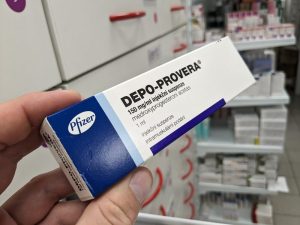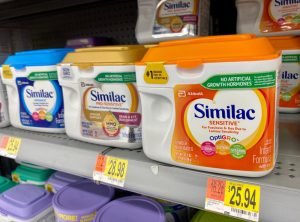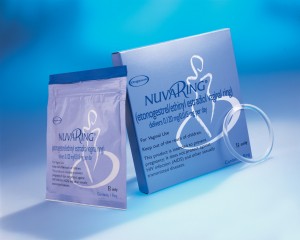Uber has been facing a growing number of allegations and civil lawsuits from rideshare passengers alleging that Uber drivers sexually assaulted them. The lawsuits against Uber allege that the company should be held liable for these sexual assaults because it negligently failed to screen its drivers properly. Recently, a growing number of sexual assault lawsuits […]
Lawsuit Against Morgan State Will Continue
 A Baltimore City Circuit Court judge has given the “go ahead” for a student’s lawsuit to proceed – for now, at least – against Morgan State University, denying a Motion to Dismiss the lawsuit.
A Baltimore City Circuit Court judge has given the “go ahead” for a student’s lawsuit to proceed – for now, at least – against Morgan State University, denying a Motion to Dismiss the lawsuit.
Awful details here. The 23-year-old Plaintiff has filed suit against Morgan State for failing to act to protect students and visitors on the university campus. The lawsuit, which seeks more than $75,000 on each of three counts consistent with Maryland’s new law not to ask for specific damages in the Complaint, was filed as a result of a horrific beating that the Plaintiff received by the hands of a man later found not criminally responsible due to mental illness.
The lawsuit alleges that there was foreseeability on the school’s part that something bad would happen. That’s where the claim gets a little tricky. The attacker, prone to violent outbursts at college events, attacked the Plaintiff with a baseball bat wrapped in barbed wire, blinding him in one eye. The lawsuit states that the warning signs were there, but that Morgan State failed to act. Previously found wielding a machete on campus, and known to leave satanic rants on social media sites, the attacker has since been arrested on a separate case. Charged with murder, it is alleged that he killed and dismembered a family friend, and consumed some of the deceased’s organs.
Louisville Police Wrongful Death Lawsuit Settles
Three years after the death of a beautiful 22-year-old girl, her family has settled a wrongful death lawsuit with the Louisville Metro Police Department. The case settled for $700,000 – and a letter. A letter to the family of the deceased from the driver responsible for the crash, an off-duty police officer.
In a letter to the family, as part of the settlement, the detective admitted that he was speeding at the time of the accident, which was a “contributing factor to this accident.” An investigation determined that he was driving at approximately 80 mph, around a curve sloping down a hill. The Louisville Metro Police Department, who admits that speeding off duty is an ongoing problem, suspended the detective for 30 days, the department’s strictest discipline, short of being fired. According to the department, he was not fired for a number of reasons, one of which was the fact that the deceased was found to have a blood-alcohol content higher than the state’s 0.08 level for drunk driving – an allegation argued by the family’s attorney as the blood-alcohol sample was lost.
Burden of Proof Hurdle Too High in Mississippi
A Mississippi Appeals court recently affirmed a trial court decision to throw out a Wal-Mart premise liability case involving a damaged container and corrosive burns. Instead of letting the events (and the injuries) speak for themselves, the court places an extremely high evidentiary expectation that was out of the plaintiff’s grasp. Should courts be allowing corporations to escape liability just because the plaintiff is unable to show every single detail of the accident when he is clearly injured? It is a challenge courts have wrestled with for hundreds of years.
What happened? A patron visited a Mississippi Wal-Mart in the fall of 2010. While perusing the aisles, he selected a bottle of bleach to put in his basket. After leaving the checkout counter, the patron realized he accidentally forgot to purchase the bleach and placed the bottle on his lap to return to the cashier. Unfortunately, this bottle of bleach was leaking and spilled its contents on his legs and thighs. Because of a prior injury, the man had been paralyzed from the waist down since 1967 and he did not become aware of the spilled bleach until the cashier noticed the leaking bottle. The bleach caused chemical burns on his thigh and knee, and he brought suit against the Wal-Mart Corporation.
The patron filed a premise liability claim that alleged Wal-Mart was negligent and had knowledge of a dangerous condition. Wal-Mart made a motion for summary judgment, and the trial court dismissed the case, saying that the patron failed to prove Wal-Mart’s negligent act. The Mississippi Appeals Court affirmed the lower court’s decision.
New Subsequent Remedial Measures Opinion
Last week, the Court of Appeals of Missouri decided a subsequent remedial measures case that I think is of interest to all personal injury lawyers no matter where you practice.
The subsequent remedial measures rule is one of those law school standards that any second-year student can explain in about two minutes. Despite its seeming simplicity, as we see in Emerson v. Garvin Group, the rule is more complicated to apply.
- Settlement amount and jury verdicts in Missouri (update 2023)
$7.25 Million Award for Defective Cochlear Implant
A Louisville, Kentucky jury awarded an eleven-year-old girl and her family $7.25 million dollars in compensatory and punitive damages as the result of a defective cochlear ear device.
Born deaf, the little girl had a cochlear ear device implanted in her head when she was four years old. Four years later, an electrical short from the device shocked her horrifically; she was thrown to the ground, vomiting and convulsing.
Before the device was removed and replaced 13 months later, she was shocked two more times. The open-head surgery to remove the device from her skull took more than seven hours.
Cook Medical Vaginal Mesh Lawsuits
Vaginal prolapse is incredibly common, with approximately 30-50% of women having some sort of prolapse during their lives. Our lawyers are investigating vaginal mesh lawsuits involving Cook Medical, in addition to other manufacturers of vaginal mesh systems.
Pelvic organ prolapse is a condition in which structures such as the uterus, rectum, bladder, urethra, small bowel, or the vagina itself may begin to fall or “prolapse” out of their normal positions. These structures may eventually prolapse farther and farther into the vagina, or even through the vaginal opening, without medical treatment or surgery. Enter synthetic mesh devices. No doubt a great idea.
According to the FDA, between January 2008 and December 2010, there were nearly 3,000 adverse event reports involving transvaginal mesh devices. Side effects reported with vaginal mesh can include:
- Infections
- Internal bleeding
- Vaginal scar tissue
- Vaginal wall narrowing
- Painful urination
- Fistulas
- Mesh shrinkage
- Mesh migration
- Urinary problems
- Punctures to the bladder, blood vessels, bowels, or other organs in the lower abdomen
- Mesh erosion into the vagina, bladder, intestines, and uterus
- Pain
- Painful sexual intercourse for both partners
- Recurrence of incontinence
- Recurrence of both pelvic organ prolapse or stress urinary incontinence, or both
Cook Medical held its product out as breakthrough technology, resistant to infection, and “unlike synthetic mesh, nothing is left permanently in the body to cause problems down the road.” On the contrary, Cook Medical transvaginal mesh products have had more than their fair share of problems. (In fairness, they have all put out awful products. Cook Medical is no exception.).
Slip and Fall Law: Atlanta Claim Dismissed by Georgia Court of Appeals
I’m amazed at how many smart, well-informed people are under the impression that if an accident occurs on a business’ property, the business is automatically liable for any and all damage. In the real world, slip and fall cases present much bigger hurdles to climb.
Last week, the Georgia Court of Appeals upheld a trial court’s summary judgment order denying a plaintiff relief in the case of Warner v. Hobby Lobby, a case illustrative of these challenges, even in a comparative negligence state like Georgia.
Fresenius Granuflo and NaturaLyte Lawsuit Update
Fresenius Granuflo and NaturaLyte lawsuits filed throughout the federal court system will now be consolidated before one Massachusetts’ judge for coordinated pretrial proceedings, as part of a multidistrict litigation (MDL).
 This affects all product liability lawsuits filed over heart attacks or sudden deaths allegedly caused by the use of GranuFlo or NaturaLyte dialysate products during hemodialysis – including at least 119 complaints filed throughout 16 different U.S. District Courts. These complaints all involve similar allegations that plaintiffs’ hearts suddenly stop during or shortly after dialysis treatment involving the use of Granuflo Acid Concentrate or NaturaLyte Liquid Acid Concentrate manufactured and sold by Fresenius Medical Care.
This affects all product liability lawsuits filed over heart attacks or sudden deaths allegedly caused by the use of GranuFlo or NaturaLyte dialysate products during hemodialysis – including at least 119 complaints filed throughout 16 different U.S. District Courts. These complaints all involve similar allegations that plaintiffs’ hearts suddenly stop during or shortly after dialysis treatment involving the use of Granuflo Acid Concentrate or NaturaLyte Liquid Acid Concentrate manufactured and sold by Fresenius Medical Care.
The lawsuits allege that Fresenius failed to adequately research the side effects of their dialysate products or warn about the potential risks including the importance of monitoring bicarbonate levels of patients receiving the products to avoid sudden cardiac arrest and death.
Georgia Slip and Fall Case Dismissed on Summary Judgment
A federal judge in Georgia recently dismissed a slip-and-fall case against Walmart finding that the company owed the woman no duty to keep its store safe from water hazards.
In Chapman v. Wal-Mart, Wal-Mart’s Customer Service Manager began instituting rainy-day procedures. Employees were instructed to place carpeted mats in the inside vestibule, inspect the vestibule and front store area throughout the morning for dampness, dry off shopping carts, hand out umbrella bags, and use brightly colored cones to warn customers of possible water on the floor.
When the plaintiff entered the store, the rain had ceased, but the weather remained damp. She entered the vestibule to grab a shopping cart, not looking down at the ground while doing so. On her way to the carts, she slipped and fell. Upon falling, she noticed a puddle on the ground. Plaintiff brought a slip-and-fall case in federal district court, alleging Wal-Mart acted negligently by failing to keep the store free of puddles and for failing to adequately warn her of puddles.















